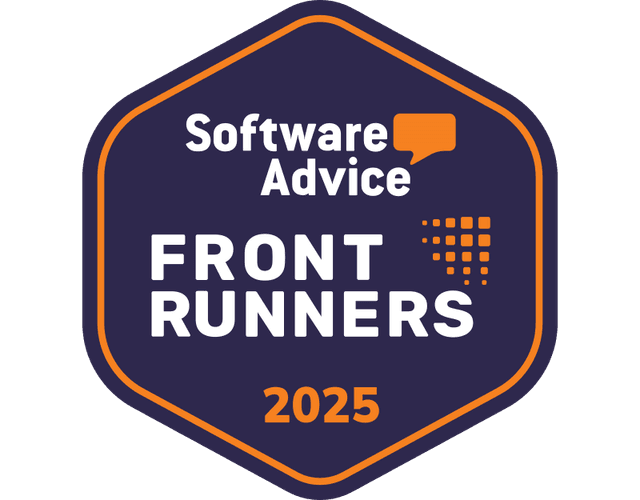What is Inspection Software?
An inspection software is a digital platform designed for examining daily tasks and issues. It aims to simplify and improve the way working teams do inspections. Organizations use inspection software mostly for managing safety, quality, and overall operations. Working teams are able to create and share forms or checklists across the organization using inspection software.Unlike old and traditional paper-based systems, inspection software allows for seamless data visualization. By seeing the bigger picture, inspection software users are able to spot problems early and take the necessary steps to address them before they affect revenue. Beyond loss prevention, inspection software helps companies analyze the effectiveness of their processes through automatically generated reports.
It would be an understatement to say that 2024 is the year of change. But what hasn’t changed is the need for smart, dynamic, and efficient inspection software. With the global pandemic, businesses have had to reevaluate their priorities and even shift business strategies. Though it’s easy to get lost in the chaos, 2024 can still be the year of growth.
How Different Industries Use Inspection Software
Inspection software is used across different industries to get the job done. Some common industries that are taking advantage of inspection software’s capabilities are manufacturing, construction, automotive, facility management, and food. These five major industries achieve optimal performance through regular inspections that are made more efficient with the use of inspection software.
Manufacturing
The manufacturing industry prepares for the future of work by using inspection software as a digital tool. In 2018, there were 12.8 million manufacturing employees in the United States. However, the widening skills gap could leave 2.4 million positions vacant. Manufacturers can close the skills gap and prepare their employees for the future of work by training them to use inspection software. By using inspection software as the bridge between people and technology, manufacturers can keep and hire more workers while still adapting to changes in the industry. Aside from closing the skills gap, manufacturers must also adapt to industry changes in design, process, and materials. Inspection software will help them achieve this through scheduled recurring inspections for efficient product verification.
Construction
Fire and safety issues, plumbing problems, and pest infestation are just some of the problems the construction industry faces. According to a survey from Porch, 86% of buyers who used a home inspection said that their inspector identified at least one problem that should be addressed. Inspection software helps inspectors raise issues immediately with live data and collaborate with contractors in creating corrective actions.
Automotive
With almost 92 million units produced in 2019, the automotive industry is projected to sell 62 million units in 2020. Though China is the world’s largest producer and consumer of cars, almost all countries require regular vehicle inspections. Through ready-made inspection templates, inspection software can help the automotive industry comply with each country’s requirements. Statistics from Traficom report that 20% of 3-15 year old cars failed such inspections in 2018. With inspection software, the automotive industry can use insights and analytics in improving overall quality control.
Facility Management
According to theNational Fire Protection Association (NFPA), structural fires caused $12.3 billion worth of property damage in 2019. With a global market size of $1.15 trillion trillion, the facility management industry maintains the safety of their buildings by using inspection software to conduct convenient mobile inspections. Aside from maintenance, facility managers also arrange building inspections requested by municipalities and coordinate with specialized inspectors. Inspection software minimizes miscommunication between them by integrating both roles into a single interactive system.
Food
With the current emphasis on disease prevention, food safety has never been more important. Though world food retail sales generate over 4 trillion dollars per year, the World Health Organization estimates that 600 million people fall ill after eating contaminated food. Restaurants can improve their risk analysis by using sensor-connected inspection software to collect critical information on hazards. Inspection software can also help the food industry respond to evolving COVID-19 restrictions through customizable inspection forms.
What to Look for in Inspection Software
Choosing the best inspection software involves a number of factors. For example, an organization’s budget for inspection software might disqualify the more expensive ones or the organization’s industry might tip the scales in favor of one built specifically for that industry. Their customers and branding might also affect the type of inspection software they choose since this would be an extension of the organization. In any case, inspection software should have four basic qualities.
Inspection software should be easy to use
What level of usability is the organization aiming for? Getting frustrated by complicated applications and processes should be the last thing to worry about. Even if the company buys the most advanced inspection software in the market, if employees don’t like using it, they probably won’t.
Inspection software should adapt to your needs
Is the organization big or small? Inspection software should be able to grow with the business and not hinder expansion. It should also be designed for cross-industry use, especially in these changing times.
Inspection software should be mobile
Smartphones, tablets, and other mobile devices have come a long way, going beyond simple two-way communication to being a mini-computer in your pocket. You can leverage this technological advancement by using inspection software to optimize your processes. However, keep in mind that not all apps are created equal. There is a difference between having an app just for the sake of it and having an app to empower users to take action.
Inspection software should look good
How much value does the organization place on design and aesthetics? Though some people may say that data speaks for itself, the truth is that people like pretty things, even when it comes to the visualization of their data. Inspection software should encourage people to conduct inspections on a regular basis, and an intuitive interface goes a long way.












